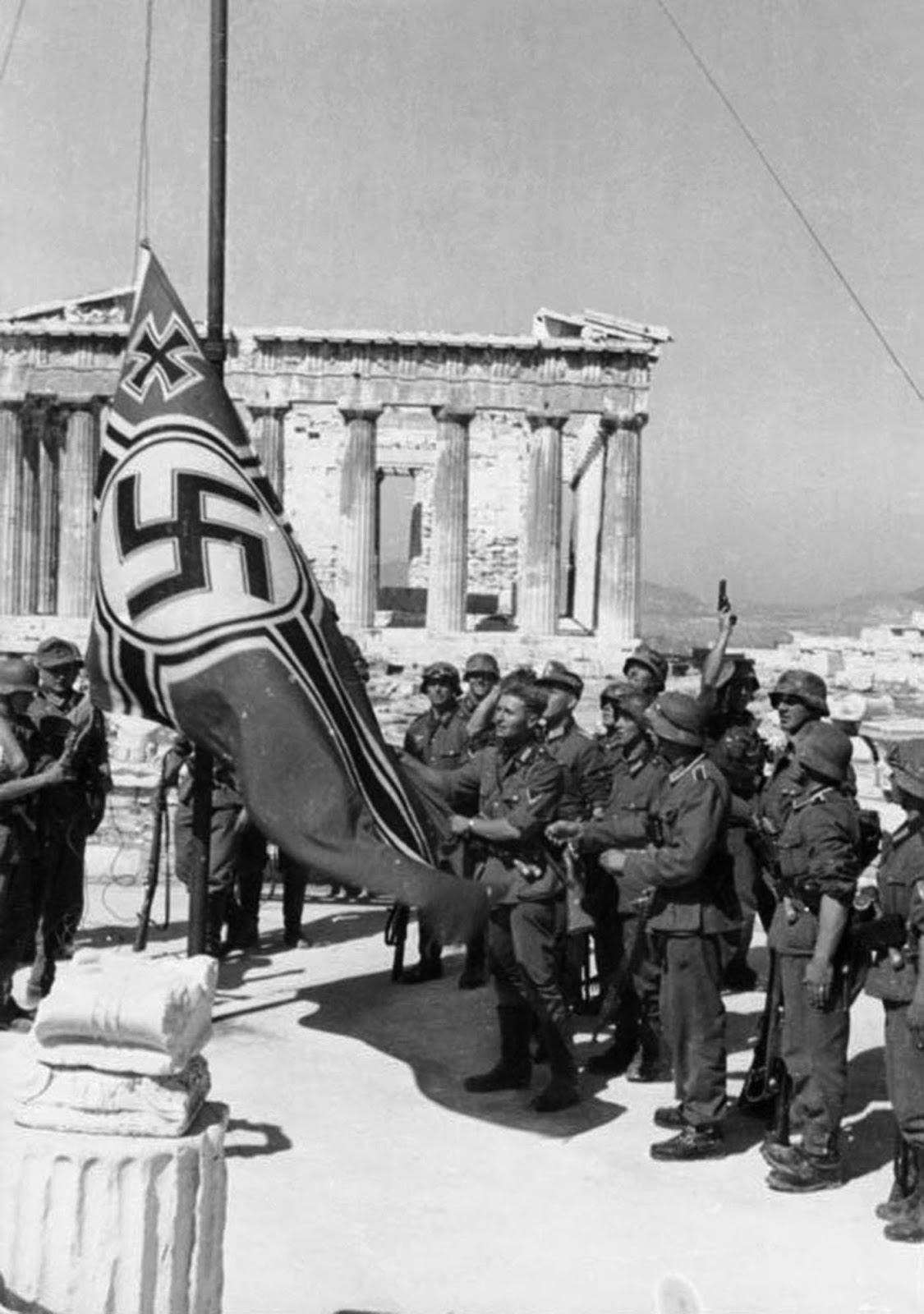German troops raising the swastika over the Acropolis, 1941

After Athens was captured by the German 2nd Panzer Division, he raised the Nazi German flag over the Acropolis as a sign of victory. This flag, symbolizing the occupation of Greece, would be taken down a month later in one of the first acts of Greek resistance.
Two 19-year-old students secretly climbed onto the northwest side of the Acropolis and tore down the Swastika banner. When the picture is viewed from a philosophical point of view, it is somewhat of a statement of where Western civilization had come to a halt in 1941 in the midst of a takeover by a regime based on racial ideology, genocide and domination.
After the subsequent invasion of Greece failed miserably, Germany invaded Greece to save Italy. A rapid German blitzkrieg campaign began in April 1941, and by June Greece was occupied by the Nazis, who themselves went on to administer the most important areas, giving other areas of the country to Germany's allies, fascist Italy and Bulgaria. given.
The occupation caused terrible hardships for the Greek civilian population. In Athens alone over 40,000 civilians died of starvation, with retaliation by the Nazis and Allies killing more than tens of thousands.
The invasion of Greece cost Germany time and was forced to postpone the invasion of the Soviet Union for almost a month. Some historians argue that if Germany had never had to help Italy and invade Greece, thus having an extra month of good weather in Russia, things might have been a little different on the Eastern Front.
As Germany's inevitable and imminent defeat neared the end of the war, Hitler placed great blame on Mussolini's invasion of Greece as the cause of his subsequent devastation.

Wilhelm Keitel, the head of the Oberkommando der Wehrmacht and the Minister of War, said of the victorious entry of the armed forces into Athens: The quarrel over the victorious entry of troops into Athens was a chapter in itself.
Hitler wanted to do without a special parade to avoid hurting Greek national pride. Regrettably, Mussolini insisted on a spectacular entry into the city for his Italian troops. The Führer accepted the Italian demand and German and Italian troops marched into Athens. This pitiful spectacle put on by our heroic ally must have generated some hollow laughter from the Greeks.

No comments: